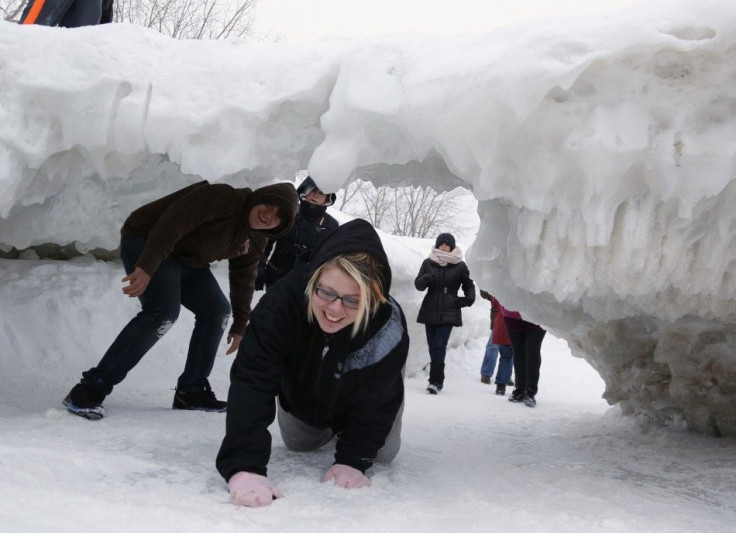Canada, US Advised To Brace For Polar Vortex 2014

Residents in the U.S.' Midwest as well as parts of Canada have been cautioned to brace for a polar vortex this year, which could pull temperatures down to as much as a freezing 22C (40F) in days.
The trigger for the cooler temperature, according to the National Weather Service in Tucson, was Typhoon Nuri, which pushed the frigid air spinning above the North Pole when it hit Alaska with hurricane-force winds recently. The weather service came up with a short video to explain how Nuri dislodged some of the frigid air up there and then had it sent down farther south than normal, thus the cold outbreaks in Canada and the U.S.
Kristina Pydynowski, Senior Meteorologist at Accuweather.com, said cold air, wind and other conditions will combine to send AccuWeather RealFeel® temperatures to drop below zero in some locations. Residents are advised to dress properly to avoid hypothermia and frostbite.
The Prairies have been cautioned against colder than normal temperatures which could extend until the weekend. Ontario and Quebec have likewise been issued weather warnings.
During Tuesday's Remembrance Day, temperatures in Alberta and Saskatchewan were well below freezing. Calgary registered with a -13 C, prompting veterans to ditch the ceremonies because of the killer weather. CBC reported many VIP seats allocated for the war heroes were mostly empty. Edmonton meantime registered a -12 C while Saskatoon was -9 C.
This year's icy conditions have claimed at least three lives in the northeast of Rocky Mountain House, Alta. The people died during an early morning highway crash on Tuesday. While in Saskatchewan, authorities had effected winter driving conditions advisories for all highways leading out Regina and Saskatoon.
Canadian weather forecasters said the freezing cold temperatures are expected to last probably until Saturday. But it could extend further. Saskatoon has been forecast to experience a warmer -7 C but not until Monday.
"Those two worlds, though, are about to collide," Stephanie Barsby, CBC meteorologist, said. "Warm air in the form of a low-pressure system heading up from the south, cold Arctic air from the northwest: the two colliding [over Ontario], creating not only rain, rain-snow mix and freezing rain, but heavy snow as well. Lots of watches and warnings."





















